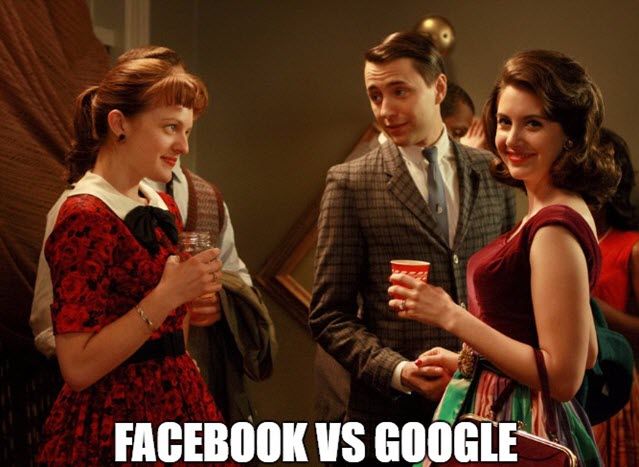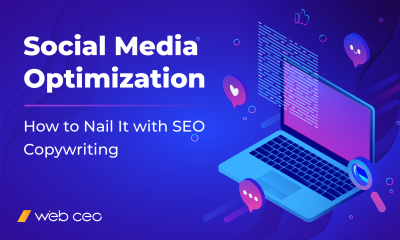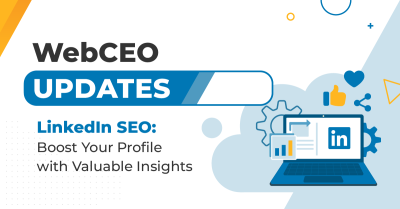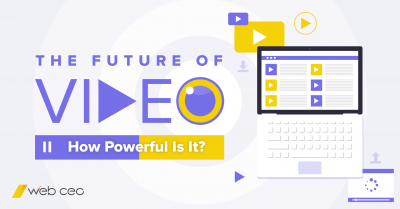
For years, Google has been the brand to beat in online advertising. Its Ads platform has been the central component of countless advertising campaigns, and since Google is such a household name, it’s often the first thing that comes to mind when people consider online advertising. Not only is Google by far the most popular search engine in the world, giving the platform access to billions of users, it also has some of the deepest reserves of user data, some of the best reporting technology, and one of the best models for ad pricing—a bid-based cost-per-click model.
But Google isn’t the only player in town; in fact, it’s quickly becoming outclassed by a certain social media platform with a similar—yet distinct—advertising model.
Facebook’s Big Draws
Facebook offers advertising in a cost-per-click model, much like Google, and has a similarly huge base of followers, with 1.59 billion monthly active users. Its advertising revenues grew from $1.8 billion in 2013 to $4.3 billion in 2015, and there’s no sign that this growth will come to a halt any time soon. According to datapine, this growth is largely due to Facebook’s flexibility for marketers, but what other specific factors have allowed Facebook to compete with, and sometimes outcompete such a massively established juggernaut?
Facebook’s Advantages
When you compare Facebook to Google directly, it becomes clear why Facebook is becoming a more popular choice among marketers:
- An intuitive ad platform. Google AdWords is fairly straightforward—if you already know what you’re doing. If you’re getting started with Google for the first time, you might be intimidated by all the advanced options, metrics, and features that it offers. In fact, it might take you weeks or months to feel comfortable launching a campaign. Facebook, on the other hand, has a more approachable, intuitive design, allowing the average small business owner or novice marketer to put together and launch a campaign in the span of a few minutes.
- Accessibility for low-budget campaigns. When it comes to budgeting, both Google and Facebook have tons of options, but overall, Facebook tends to be friendlier to low-budget campaigns. In Google, if you restrict your budget to less than a few hundred dollars per month, you’ll be scraping the bottom of the barrel in terms of keyword choices, but on Facebook, you can opt for a $5-per-day budget and still get in front of your ideal target users (just at a lower volume than you would at a higher budget level). This also makes it easier to scale a campaign over time.
- More user data. Google has a ton of user information at its disposal, which is one reason why it remains so popular—but it’s all limited to how users search and engage with websites. Facebook, on the other hand, digs much deeper into the user’s psyche, with detailed information on all our likes, dislikes, past behavior, and even our connections with friends and family members. Because of this, you can target audiences in much more advanced ways with Facebook than you can with Google.
- Lower competition. Though this becomes less and less true as Facebook ads become more popular, for the moment, Facebook has less competition than Google. Because Google is so popular, brands from all over the world are competing for ad space, which drives the cost of advertising up for everyone. On Facebook, competition isn’t this intense, so you’ll enjoy lower prices for a similar scope of advertising—at least for now.
- Greater ad diversity. Facebook also offers a wider diversity of different advertising options, including “promoted content,” which are essentially basic Facebook posts that you put in front of new audiences with a paid “boost,” traditional advertising options, and ecommerce-like product listings that enable people to purchase your products directly.
- Willingness to evolve. Finally, Facebook has shown a greater tendency to evolve, improve its offerings, and adjust its advertising platform over time. This may be a recent phenomenon, thanks to Facebook’s relative newness in the advertising world, but it’s worth considering if you’re looking for a long-term advertising partner.
Of course, none of this is to suggest that Google is no longer a valid advertising platform, or that Facebook is objectively a better choice. Facebook does have some clear advantages, but don’t forget that Google still has plenty of unique features and tricks up its sleeve, including advanced analytics information and product-specific targeting with its keyword-centric approach.
If you’re interested in paid advertising, it’s likely in your best interest to use both platforms to get the best of both worlds, or do some extensive research to decide which platform will perform best for your brand.
For those exploring the possibilities within Google’s ecosystem, WebCEO’s Online SEO Tools offer a comprehensive suite for managing and optimizing your campaigns, ensuring that you’re fully equipped to navigate the complexities of Google’s advertising network.


